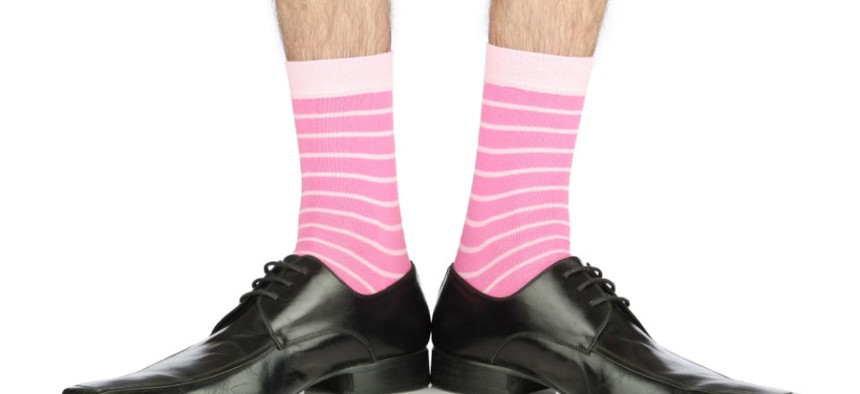
Elnur/Shutterstock.com
Three Good Reasons to Embarrass Yourself in Public
Sharing personal stories builds connection at work and elsewhere.
Can you imagine what it would be like to stand up in front of a roomful of strangers and read selections from the journal or diary you kept as a teenager? If you find yourself in Denver on the right evening, you could have the opportunity to find out.
There’s a great story in the Wall Street Journal this week about a semi-regular gathering at the Contemporary Museum of Art Denver called My Teenage Angst. Similar events have been held in Seattle, Los Angeles and other cities around the U.S. The point of them is summed up by Ben Haley, an event organizer in Seattle: “Our guideline for would-be readers is to find something where your first thought is, ‘I hope nobody finds this.’ And bring that.”
Rachel Nyce, a participant in My Teenage Angst in Denver offers a good example of what Haley is looking for. This quote from her seventh grade diary about a crush she had on a boy ran in the Journal story:
“I wish I could take him to a brain wash place. Then I could brain wash him to like me! Wouldn’t that be awesome! Then we could go everywhere together! He would LOVE me 4-ever and ever!”
OK, I get it that standing up in front of a roomful of people and reading from your junior high school journal isn’t for everyone. I do think, though, that there are some important parallels between what people get out of these events and what is often missing in the relationships we have at work and elsewhere in our lives.
Here are three reasons why it could be a good idea to embarrass yourself in public and create space for others to do the same.
Connection: One of the things I love about the idea of My Teenage Angst is that it so quickly establishes connection between the people in the room. One thing that we know for sure is that we were all teenagers once. Thanks to the people who are brave enough to stand up and read from their high school and middle school diaries, everyone else in the room recognizes that the experiences we have as humans being are common. By talking about them we establish connection and trust with others. One of the things I’ve been doing for the past couple of years in my workshops on mindful leadership is to give the participants a chance to experience transformational listening by getting in groups of three and taking turns speaking and listening to each other talk about something (and it can be anything) that’s important to each of them. Each round of speaking and listening is only seven minutes long, but universally the participants find points of connection they never knew they had. The irony of this age of hyperconnectivity is that we’re not just hungry for connection, we’re thirsty for it. Taking the time and making it safe to share personal stories builds connection.
Perspective: Things change. People change. What seemed like a life or death situation back then often seems silly or funny now. Our perspective changes with distance. In looking through the journals I’ve kept as an adult I’ve found that’s as true for issues of career, parenting, health and marriage as it was for the social scene in high school. Most of what seemed like a big deal at the time turned out not to be. The stuff that actually was important at the time was almost always resolved in some way down the road. Nothing is permanent. Everything changes. I guess reading the record of that change in public would just put a much sharper point on the obvious.
Freedom: Carrying around all of those embarrassing or self-critical stories about yourself that you lock in dark little corners of your mind can really weigh you down. That little voice inside your head that I like to call the itty bitty shitty committee can convince you that you’re the only one with those kinds of stories and glaringly obvious deficiencies. Of course, the fact is you’re not the only one and they’re not really deficiencies either. You’re just another human being on the journey. By sharing the stories and the self-criticism with people who trust and support each other, you declare your freedom from the itty bitty shitty committee. In doing so, you free yourself to let go of beating yourself up over stuff that happened a long time ago and create more space to be the best present day version of yourself that you can be.
What are your thoughts? How could you take the idea behind “My Teenage Angst” to create conversations that foster connection, perspective and freedom?
(Image via Elnur/Shutterstock.com)







